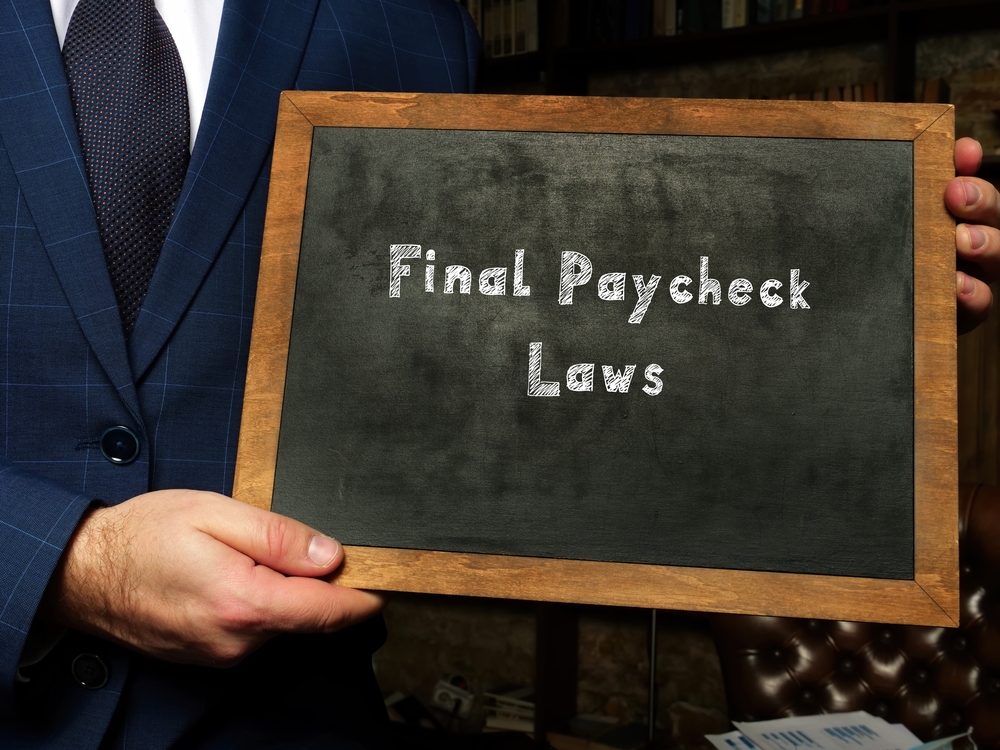
What are final paycheck laws?
Final paycheck laws are the employment laws that dictate how an employer must handle and distribute a former employee’s final paycheck. These laws vary from state to state, but typically include provisions for when the final paycheck must be issued and what information must be included in it.
In most cases, employers are required to issue a final paycheck within a certain number of days after the employee’s last day of work. For example, in California, employers must issue a final paycheck within 72 hours of an employee’s departure. The final paycheck must include all wages earned, as well as any accrued vacation or sick time.
How does this apply to me?
When you leave a job, you may be wondering what to do with your final paycheck. There are specific laws that govern how final paychecks must be handled. Here’s what you need to know.
Under the Fair Labor Standards Act (FLSA), an employer must pay employees their final paycheck within 72 hours of the employee’s last day of work. This includes wages, vacation pay, and any other compensation that is owed to the employee.
If the employee is terminated, the employer must provide the final paycheck immediately. If the employee quits, the employer has 72 hours to provide the final paycheck.
There are a few exceptions to this rule. If the employee is terminated for cause, the employer may withhold the final paycheck until an investigation is completed. Likewise, if the employee owes the company money, the employer may withhold the final paycheck until the debt is repaid.
If you are owed money by your former employer, you can file a claim with the Wage and Hour Division of the Department of Labor. The division will investigate the claim and may take legal action against the employer.
The rules for final paychecks can be confusing, but it’s important to understand your rights. By knowing your rights, you can ensure that you receive the money that you are owed.
This article is for general information purposes only and is not intended to provide legal advice. If you have any questions about final paycheck laws, consult an California Employment Law attorney in your state. CA Employment law attorneys can discuss the specifics of your situation and get you the answers you are looking for.
What is the difference between being terminated vs. quitting?
When an employee is terminated, the employer ends the employment relationship, either due to “at-will” employment or for a specific reason, such as poor performance or misconduct. When an employee quits, the employee terminates the employment relationship voluntarily.
Why does it matter?
The difference between being terminated and quitting matters because it affects the timing of when an employer must provide the final paycheck. If an employee is terminated, the employer must provide the final paycheck immediately. If an employee quits, the employer has 72 hours to provide the final paycheck.
How can an attorney help me with final paycheck laws?
When it comes to final paycheck laws, Employment Law attorneys can help in a few specific ways. First, they can ensure that the employer is following all applicable laws and regulations. Second, they can help to negotiate a settlement agreement if the employee is owed money. Finally, they can provide legal representation if the employee decides to take legal action against his or her former employer. By working with a California Employment Law attorney, employees can be sure that they are taking the most effective steps possible to get the money they are owed.
So, if you or someone you know has recently been terminated or quit, hasn’t received their paycheck, and is wondering what to do next, call The Law Offices of Katharina Martinka to discuss how the California final paycheck law may apply to your situation. Katharina Martinka will be happy to help and answer any questions you may have. Call today.